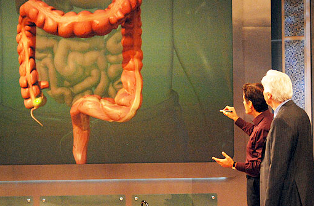September 6th, 2010 by KevinMD in Better Health Network, Health Policy, News, Opinion, Research
Tags: 30 Million Newly-Insured Patients, American Board of Internal Medicine, At-Risk Doctors, Colin West, Compromising Patient Care, Depression in Doctors, Dissatisfied Physicians, Doctor Patient Relationship, Doctors and Suicide, Emotional Exhaustion, Healthcare reform, Influencing Patient Care, JAMA, Journal of the American Medical Association, Leaving Primary Care, Mayo Clinic, Medical Errors, Medical Mistakes, Medical Residents, Medical Training Epidemic, Minimize Doctors' Distress, Mistakes In Patient Care, New England Journal of Medicine, New York Times, Physician Burnout, Physician Fatigue, Stressed-Out Doctors, Tired Doctors, University of Rochester School of Medicine
No Comments »

A new patient recently said he was referred to me after his last doctor had left medicine. His old doctor always looked unhappy and burned out, he noted.
Burnout affects more than half of doctors, according to researchers at the University of Rochester School of Medicine. Beyond mere job dissatisfaction, these doctors are emotionally exhausted to the point where they lose focus. They tend to be more depressed — perhaps one reason why doctors have a higher suicide rate than the general population.
While burnout can happen in any profession, the performance of stressed-out doctors can hurt someone else: Patients. Read more »
*This blog post was originally published at KevinMD.com*
September 5th, 2010 by Medgadget in Better Health Network, News, Research
Tags: Brushing Your Teeth, Dental Hygiene, Dentistry, Healthy Teeth, Japan, No Toothpaste Required, Oral Health, Saskatoon StarPhoenix, Shiken, Soladey-J3X, Solar Panel, Solar-Powered Toothbrush, Toothbrushing, University of Saskatchewan
No Comments »

 Researchers at the University of Saskatchewan have developed a solar-powered toothbrush that doesn’t require toothpaste.
Researchers at the University of Saskatchewan have developed a solar-powered toothbrush that doesn’t require toothpaste.
At the base of the brush is a solar panel, which transmits electrons to the top of the toothbrush through a lead wire. These electrons react with acid in the mouth, breaking down plaque without the help of toothpaste. It’s an advancement of a model described 15 years ago using a titanium dioxide rod which released electrons when illuminated.
The researchers are currently recruiting 120 teens to test the brush. The model is named Soladey-J3X and is manufactured by the Shiken company of Japan.
More from Saskatoon StarPhoenix: Solar toothbrush could make toothpaste obsolete…
*This blog post was originally published at Medgadget*
September 5th, 2010 by JenniferKearneyStrouse in Better Health Network, News, Research
Tags: ACP Internist, Colon Cancer Screening Test, Colorectal Health, Epidemiology, Family Medicine, Gastroenterology, General Medicine, Internal Medicine, LA Times, Los Angeles Times, Physician Awareness, Primary Care, Rectal Bleeding, Rectal Cancer Rates, SEER Registry, Symptom Alerts For Doctors, Younger People
No Comments »

Rates of rectal cancer in those younger than 40 have been increasing, the LA Times reported recently.
Researchers studied data from the Surveillance, Epidemiology and End Results (SEER) Registry and looked at the change in rectal and colon cancer incidence in those under 40 from 1973 to 2005. Overall rates were low, but while colon cancer incidence remained constant, rectal cancer incidence increased by an average of 3.8 percent annually, the authors reported in the journal Cancer.
The authors didn’t advocate routine screening in those under 40, but did recommend that physicians be more alert to the possibility of rectal cancer in those presenting with symptoms such as rectal bleeding, according to the Times. (LA Times)

*This blog post was originally published at ACP Internist*
September 4th, 2010 by BarbaraFicarraRN in Better Health Network, Health Tips, Opinion, Research
Tags: 15-Minute Office Visit, Doctor-Patient Communication, Family Medicine, General Medicine, Good Patient Outcomes, How To Talk To Your Doctor, Less Time With Patients, Managed Care Environment, Not Enough Time For Patients, Office Visit Interruptions, Patient-Physician Relationship, Primary Care, Rushed Office Visit, Time Spent With Patients
1 Comment »

 From Kevin Pho’s medical blog, KevinMD, a post archived from 2004, Pho talks about the struggles of communication between doctor and patient during the 15-minute office visit.
From Kevin Pho’s medical blog, KevinMD, a post archived from 2004, Pho talks about the struggles of communication between doctor and patient during the 15-minute office visit.
Pho sites a New York Times article that explains that more than two decades ago, research shows that patients were interrupted 18 seconds into explaining their problem (on average) and less than 2 percent got to finish their explanations.
Pho sites that he sometimes falls into the “interruption trap,” saying: “I think this is a natural progression to our managed care environment. Physicians are compensated by quantity of patients seen, and are kept to a strict schedule -– in most cases every 15-minutes.” Read more »
*This blog post was originally published at Health in 30*
September 3rd, 2010 by Jon LaPook, M.D. in Better Health Network, Health Tips, News, Research, True Stories
Tags: Adenomatous Polyp, Benign Polyps, Colon Cancer, Colon Cancer Screening Test, Colonoscopy, Colorectal Health, Dr. Mehmet Oz, Family Medical History, Family Medicine, Gastroenterology, Gastrointestional Medicine, General Medicine, Internal Medicine, Katie Couric Effect, Lack Of Exercise, Obesity, Pre-Cancerous Colon Polyp, Preventive Medicine, Preventive Screening, Primary Care, Processed Meats, Public Awareness, Red Meat, Smokers, smoking, Too Much Alcohol
No Comments »
 Dr. Mehmet Oz just might be the last person on earth people would expect to get a colon polyp. He’s physically fit (he left me in the dust the last time we ran together), he eats a healthy diet, he doesn’t smoke, and he has no family history of colorectal cancer or colon polyps.
Dr. Mehmet Oz just might be the last person on earth people would expect to get a colon polyp. He’s physically fit (he left me in the dust the last time we ran together), he eats a healthy diet, he doesn’t smoke, and he has no family history of colorectal cancer or colon polyps.
But several weeks ago, when Mehmet had his first screening colonoscopy at age 50, I removed a small adenomatous polyp that had the potential to turn into cancer over time. Statistically, most small polyps like his don’t become cancer. But almost all colon cancers begin as benign polyps that gradually become malignant over about 10 to 15 years.
Since there’s no way of knowing which polyps will turn bad, we take them all out. The good news is there’s plenty of opportunity to prevent cancer by removing these polyps while they are still benign. But only about 63 percent of Americans between ages 50 and 75 get screened for colorectal cancer. Read more »




 Researchers at the University of Saskatchewan have developed a solar-powered toothbrush that doesn’t require toothpaste.
Researchers at the University of Saskatchewan have developed a solar-powered toothbrush that doesn’t require toothpaste.

 From Kevin Pho’s medical blog, KevinMD, a
From Kevin Pho’s medical blog, KevinMD, a  Dr. Mehmet Oz just might be the last person on earth people would expect to get a colon polyp. He’s physically fit (he left me in the dust the last time we ran together), he eats a healthy diet, he doesn’t smoke, and he has no family history of colorectal cancer or colon polyps.
Dr. Mehmet Oz just might be the last person on earth people would expect to get a colon polyp. He’s physically fit (he left me in the dust the last time we ran together), he eats a healthy diet, he doesn’t smoke, and he has no family history of colorectal cancer or colon polyps.







